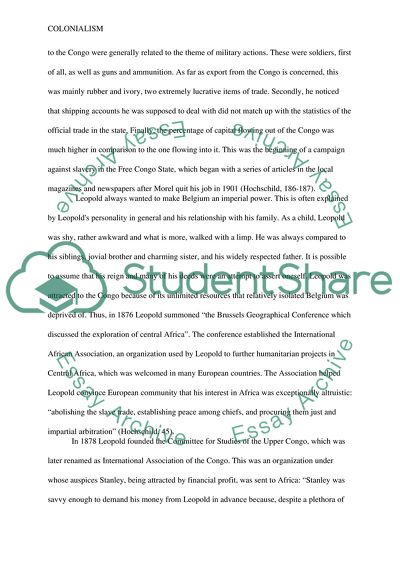Cite this document
(“Unit IV: King Leopolds Ghost Essay Example | Topics and Well Written Essays - 2500 words”, n.d.)
Unit IV: King Leopolds Ghost Essay Example | Topics and Well Written Essays - 2500 words. Retrieved from https://studentshare.org/literature/1699044-unit-iv-king-leopolds-ghost
Unit IV: King Leopolds Ghost Essay Example | Topics and Well Written Essays - 2500 words. Retrieved from https://studentshare.org/literature/1699044-unit-iv-king-leopolds-ghost
(Unit IV: King Leopolds Ghost Essay Example | Topics and Well Written Essays - 2500 Words)
Unit IV: King Leopolds Ghost Essay Example | Topics and Well Written Essays - 2500 Words. https://studentshare.org/literature/1699044-unit-iv-king-leopolds-ghost.
Unit IV: King Leopolds Ghost Essay Example | Topics and Well Written Essays - 2500 Words. https://studentshare.org/literature/1699044-unit-iv-king-leopolds-ghost.
“Unit IV: King Leopolds Ghost Essay Example | Topics and Well Written Essays - 2500 Words”, n.d. https://studentshare.org/literature/1699044-unit-iv-king-leopolds-ghost.


